Content
PQQ or pyrroloquinoline quinone is a B vitamin that was discovered relatively recently. Scientists knew about its existence earlier, but they considered it a vitamin-like compound and called it methoxanthine. It is interesting to study the properties of pyrroloquinoline quinone and understand why it is currently recognized as a complete vitamin.
What is pqq (pyrroloquinoline quinone)
Coenzyme PQQ, pyrroloquinoline quinone or methoxanthine, has long been considered a vitamin-like substance, that is, a compound that is necessary for the body to function, but does not have pronounced beneficial properties. It was only in the early 2000s that scientific research established that the substance methoxanthin has many beneficial properties and can be considered a real vitamin.
The discovery was made by Japanese scientists who conducted an experiment on laboratory mice and found that an increase in B14 levels really significantly affects the state of experimental animals. During the experiments, it was found that laboratory mice that regularly received PQQ in their diet began to look noticeably better than animals from the comparative group. The immunity of the experimental mice increased, the functioning of the reproductive system improved, the coat became thicker and softer.
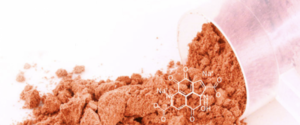
Currently, there is still scientific debate regarding the role of pyrroloquinoline quinone. However, after research by Japanese scientists, most of the scientific community is inclined to consider vitamin B14 as an important element for human health.
PQQ belongs to vitamins resistant to high temperatures, but water-soluble and belongs to group B. In its natural form in the body, it is present in erythrocytes and primarily performs a transport function, responsible for the delivery of oxygen to tissues and organs.
Why does the body need pyrroloquinoline quinone
For the human body, PQQ, or pyrroloquinoline quinone, is of great importance. Its presence in cells affects the most important systems of the body:
- The cardiovascular system... Pyrroloquinoline quinone, present in red blood cells, plays an important role in the transport of oxygen and nutrients to organs and tissues. At a normal level of B14, the state of the vascular system and heart muscle improves, the oxygen supply to the brain increases. In turn, this reduces the risk of hypoxia and ischemia, protects the body from the development of dangerous cardiovascular diseases.
- Nervous system... Pyrroloquinoline quinone, or PQQ, has a beneficial effect on nerve cells and has a neuroprotective effect. Vitamin B14 protects nerve cells from decay and promotes their rapid regeneration, prevents the development of dangerous neurological diseases.
- Organs of vision... Pyrroloquinoline quinone is very important for eye health - with a normal vitamin level in the body, the risk of visual impairment, cataract development and lens opacity is reduced.PQQ is especially beneficial in old age.
- The immune system... It has been proven that vitamin complexes and nutritional supplements containing pyrroloquinoline quinone increase the activity of lymphocytes - blood cells responsible for fighting viruses and infections. Thus, the use of PQQ helps to protect against colds, fungal and inflammatory diseases and to strengthen the immune system.
- Reproductive sphere... Scientific research confirms that pyrroloquinoline quinone, or vitamin B14, enhances the production of lysine, an amino acid important for the healthy functioning of the human reproductive system. The use of PQQ is justified, including during pregnancy, the vitamin contributes to the normal development of the fetus in the mother's womb.
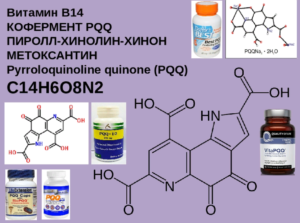
In addition to the listed beneficial properties, pyrroloquinoline quinone has other valuable qualities:
- PQQ acts as a powerful natural antioxidant combining the properties of riboflavin and ascorbic acid. Taking vitamin B14, or PQQ, has a rejuvenating effect on the body, slows down the aging process and promotes cell renewal. This is important not only from the point of view of prolonging youth - pyrroloquinoline quinone is able to prevent the development of cancerous tumors.
- Pyrroloquinoline quinone effectively protects the liver from destruction. Vitamin B14 prevents free radical oxidation and promotes the breakdown of ethyl alcohol molecules. The normal level of vitamin B14 in the blood prevents the development of severe intoxication after drinking alcohol, mitigates the effects of food poisoning.
Where is pyrroloquinoline quinone contained
You can get the required amount of pyrroloquinoline quinone from regular foods. Since the body needs PQQ in small quantities, it is quite rare to be deficient - a varied healthy diet allows you to naturally maintain the required B14 level.
In its natural form, pyrroloquinoline quinone is present mainly in plant products. These include:
- parsley and dill;
- fruits - apples and kiwi, bananas and papaya;
- vegetables - tomatoes and carrots, cabbage and celery, potatoes and bell peppers;
- legumes - peas, beans and soybeans;
- flour products, in particular, wholemeal bread.

Liver is a valuable source of PQQ in animal products. It has been noticed that high amounts of PQQ are contained in traditional Japanese dishes, in which soy products are actively used.
Indications for pqq use
With a normal diet, the human body receives vitamin B14 in sufficient quantities from food. However, in conditions of a poor diet and in some diseases, the amount of pyrroloquinoline quinone in the blood may decrease. In this case, it makes sense to use pharmacy vitamin supplements containing vitamin B14 in order to fill the deficiency of the valuable compound.
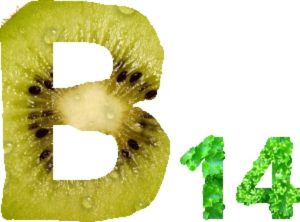
Supplemental intake of PQQ vitamin is indicated for the following diseases and conditions:
- with a decrease in immunity and frequent colds;
- with ailments of the heart system - angina pectoris, ischemia, dystrophy of the heart muscle;
- with atherosclerosis and vascular fragility;
- with neuroses, severe stress and depression;
- with Alzheimer's and Parkinson's disease in the elderly;
- with a decrease in mental activity and concentration of attention;
- with cataracts and other eye diseases;
- with severe diseases and toxic liver damage;
- with complex malfunctions in the body against the background of chemotherapy;
- with chronic fatigue.
Pyrroloquinoline quinone is recommended for children's use if the child has a lag in physical or mental development. It also makes sense to introduce vitamin B14 into the diet if the child is experiencing severe mental and physical stress at school.
Contraindications and side effects
Vitamin B14, or pyrroloquinoline quinone, is an important element for human health and is produced in small quantities by the body on its own. Therefore, no contraindications have been found for PQQ at the moment - it is possible to use supplements with B14 for any diseases and conditions of the body, pyrroloquinoline quinone does not harm.
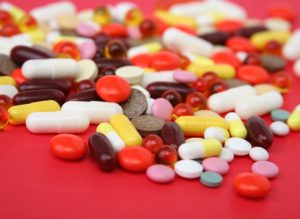
The only prohibition on the use of PQQ may be the presence of an individual allergy, it is rare, but still exists. In this case, foods with a high content of the substance and vitamin supplements should be discarded.
For young children, PQQ is safe in the absence of allergies. Vitamin supplements should not be offered to children, but if foods with B14 do not cause a negative reaction, then they can be introduced into the diet by agreement with a pediatrician at almost any age.
Pyrroloquinoline quinone has no side effects either. Since the vitamin quickly dissolves in water, even in case of an overdose, it is excreted from the body along with urine and does not provoke any negative effects.
In the presence of an individual allergy, a negative reaction from an increase in the PQQ level manifests itself in the standard symptoms - the appearance of itching, redness, skin irritation, nausea and diarrhea. With these signs, taking vitamin supplements or products with pyrroloquinoline quinone should be discontinued, and negative symptoms will naturally recede.

Instructions for the use of vitamin B14
In pharmacies, pyrroloquinoline quinone is offered mainly as part of complex vitamin supplements. Therefore, there is no single scheme of use for B14, the instruction depends on which drug is used to strengthen the body. You can find vitamin B14 in the form of tablets or capsules with a gelatinous shell - the substance is not sold in liquid form, since it belongs to the category of water-soluble and in liquid it rapidly loses its beneficial properties.
In general, vitamins with a B14 content are usually consumed once a day on a full stomach, immediately after a meal. It is believed that PQQ is best absorbed in the morning. For quick absorption, take vitamins with plenty of water.
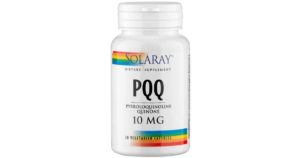
Conclusion
PQQ or Pyrroloquinoline Quinone is a little-known vitamin that is very important for the healthy functioning of the body. Its deficiency is quite rare, but in the presence of diseases and organic disorders, it is possible to increase the PQQ level with the help of vitamin supplements - this will be beneficial. An interesting feature of pyrroloquinoline quinone is that the substance has practically no side effects and contraindications.
PQQ (pyrroloquinoline quinone) reviews

